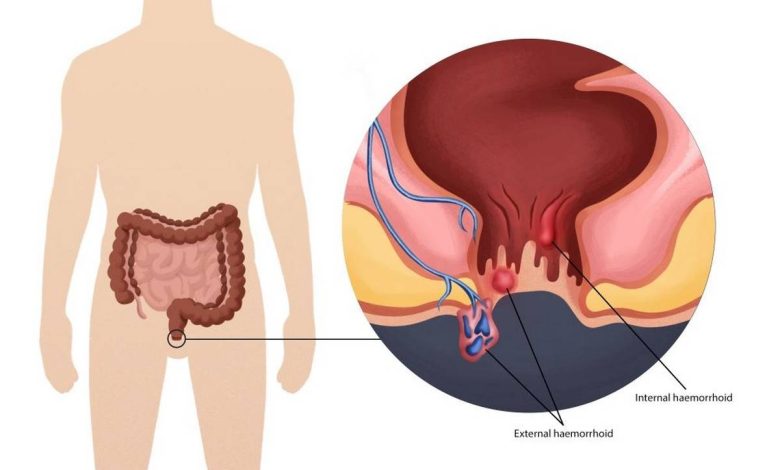rectal bleeding, hematochezia: what is this, causes, symptoms, diagnostics, treatment, prevention

Rectal bleeding; Rectal bleeding; Blood in the stool; Hematochezia; Lower gastrointestinal bleeding
What is rectal bleeding?
rectal bleeding, also known as hematochezia, means bright red blood in the stool or toilet paper after a bowel movement. This can be a frightening and disturbing symptom., but it's important to understand, that rectal bleeding is a common problem and can have many different causes. In this article, we will discuss, what is rectal bleeding, his reasons, symptoms, when to see a doctor, diagnostics, treatment, home treatment and prevention.
Causes of rectal bleeding
Rectal bleeding can be caused by many reasons., starting from benign, non-threatening conditions and ending with serious, life-threatening diseases. The most common causes of rectal bleeding are:
- Hemorrhoids. Hemorrhoids are swollen veins, located inside or outside the anus. This is an extremely common disease., which can cause burning, itching and even rectal bleeding.
- Anal fissures. Anal fissures are small tears or cracks in the lining of the anus and rectum.. They are usually caused by straining during a bowel movement., but can also be caused by certain infections, inflammatory bowel disease or even tumors. Anal fissures can cause pain, itching and rectal bleeding.
- inflammatory bowel disease (VZK). IBD is a group of diseases, causing intestinal inflammation. The group includes Crohn's disease and ulcerative colitis, both of which can cause rectal bleeding.
- Colon cancer. Colon cancer is a serious disease, in which cancer cells grow in the colon or rectum. It is the third leading cause of cancer death worldwide and can cause rectal bleeding..
- Diverticulosis. Diverticulosis is a condition, in which small pockets or sacs form in the intestinal mucosa. It is most common in older people and can cause rectal bleeding..
- Archoptosis. Rectal prolapse is a condition, in which the rectum slips out of its position, usually through the anus. It can cause rectal bleeding and is most common in the elderly and young children.
Symptoms of rectal bleeding
The most common symptom of rectal bleeding is the presence of blood in the stool or on toilet paper after wiping. Other symptoms may include:
- Pain or discomfort in the rectal area
- Itching or burning around the anus
- Feeling of fullness in the rectal area
- Swelling or mass in the rectal area
- Changes in bowel habits
When to contact a healthcare professional
If you are experiencing rectal bleeding, it is important to contact your doctor as soon as possible. This is especially true, if bleeding is accompanied by other symptoms, such as abdominal pain, fever or changes in bowel habits. Your doctor will be able to diagnose the cause of rectal bleeding and recommend appropriate treatment..
Diagnosis of rectal bleeding
To diagnose the cause of rectal bleeding, your doctor, probably, perform a physical examination and ask about your medical history. He may also order additional tests., such as colonoscopy or sigmoidoscopy, to get a better view of the inside of the rectum and colon.
Maybe, you will need to take one or more examinations or tests, to find the cause:
- Digital rectal examination .
- Anoscopy.
- May require sigmoidoscopy or colonoscopy , to look inside the colon with a camera at the end of a thin tube, to find or treat the source of the bleeding.
- Angiography .
- Blood Scan .
You may have one or more lab tests, including:
- General blood analysis (CBC)
- Blood clotting studies
- chair culture
Treatment of rectal bleeding
Treatment for rectal bleeding depends on the underlying cause. For Example, if bleeding is caused by hemorrhoids, This treatment may include topical creams or ointments, sitz baths and dietary changes. If the bleeding is caused by a more serious condition, such as colon cancer, treatment may include surgery, radiation therapy or chemotherapy.
Home Treatment for Rectal Bleeding
If rectal bleeding is mild and not accompanied by other symptoms, some home treatments can help. These include:
- Receiving warm baths
- Applying cold compresses to the rectal area
- Taking stool softeners, to facilitate bowel movements.
- Dieting, rich in fiber, to relieve stress during bowel movements.
- Avoiding constipation, drinking plenty of fluids and exercising regularly.
- Applying over-the-counter creams or ointments to the rectal area to relieve itching or burning.
Prevention of rectal bleeding
The best way to prevent rectal bleeding is to maintain good general health.. This includes healthy eating., regular exercise and adequate rest. It is also important to avoid straining during a bowel movement., as it may increase the risk of rectal bleeding.
If you are at risk for any of the conditions, which can cause rectal bleeding, such as IBD or colon cancer, it is important to talk to your healthcare provider about screening and early detection.
Used sources and literature
DeGeorge LM, Nable JV. Gastrointestinal bleeding. In: Walls RM, ed. Rosen’s Emergency Medicine: Concepts and Clinical Practice. 10th ed. Philadelphia, PA: Elsevier; 2023:chap 26.
Kaplan GG, Of SC. Epidemiology, pathogenesis, and diagnosis of inflammatory bowel diseases. In: Feldman M, Friedman LS, Brandt LJ, eds. Sleisenger and Fordtran’s Gastrointestinal and Liver Disease. 11th ed. Philadelphia, PA: Elsevier; 2021:chap 115.
Kwaan MR. Hemorrhoids, anal fissure, and anorectal abscess and fistula. In: Kellerman RD, Rakel DP, eds. Conn’s Current Therapy 2022. Philadelphia, PA: Elsevier; 2022:219-222.
Lamps LW. Anus. In: Goldblum JR, Lamps LW, McKenney JK, Myers JL, eds. Rosai and Ackerman’s Surgical Pathology. 11th ed. Philadelphia, PA: Elsevier; 2018:chap 18.
Swartz MH. The abdomen. In: Swartz MH, ed. Textbook of Physical Diagnosis: History and Examination. 8th ed. Philadelphia, PA: Elsevier; 2021:chap 17.
